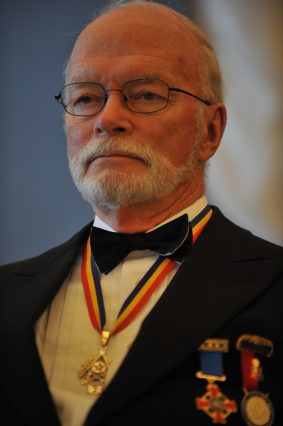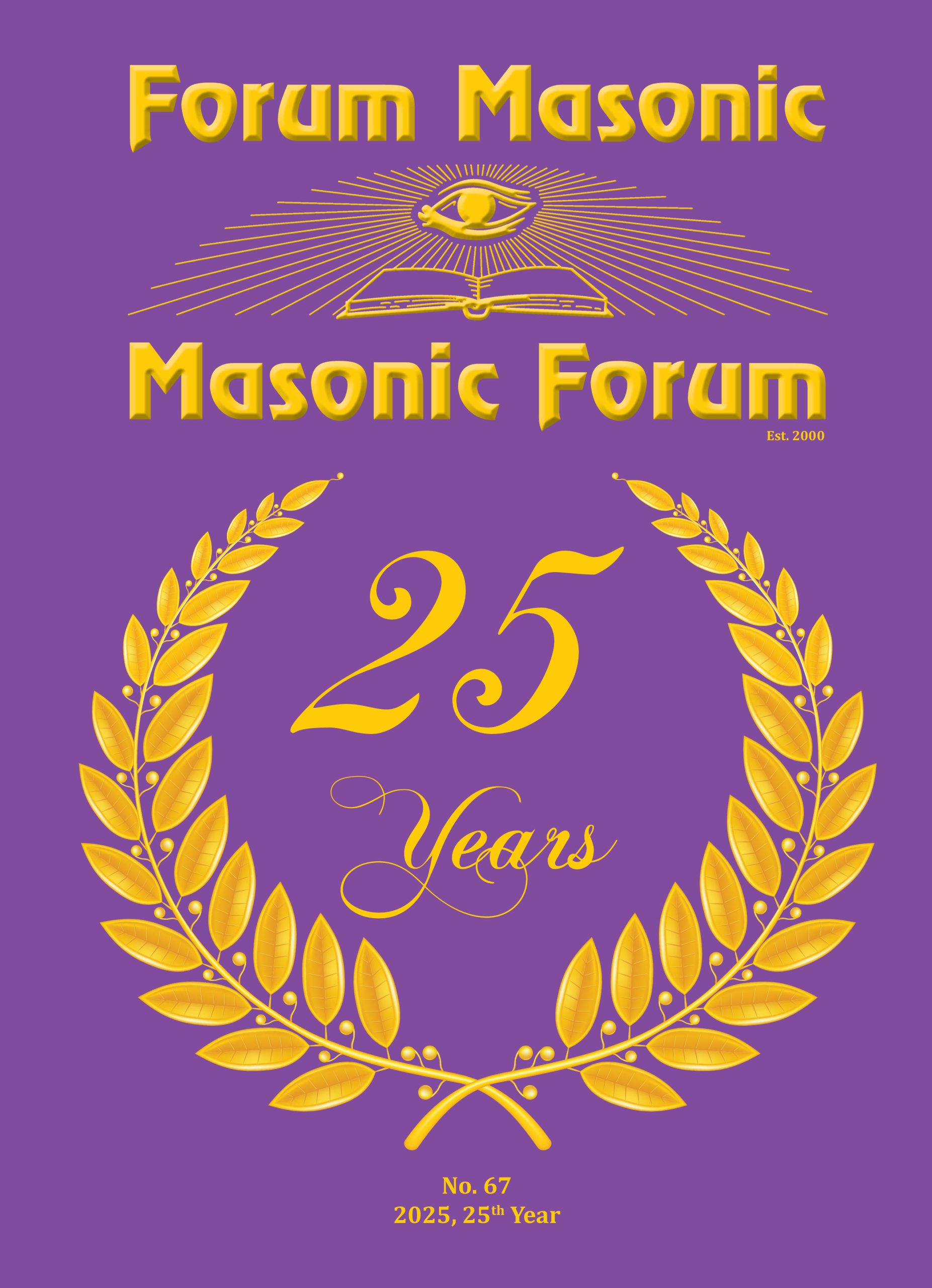CLAUDIU IONESCU
talking to
THOMAS JACKSON (part 1)

Very good evening, my dear Most Worshipful Brother Tom, and many thanks for accepting to join this Zoom meeting! First of all, Tom, do you think that mankind needs Freemasonry today as much as it did in the past?
I don’t think there’s any time in history, in the past or the present, that Freemasonry would not be needed by mankind. The philosophical purpose of Freemasonry – to make good men better – cannot be denied as a factor in the evolution of civil societies. No matter how long the world may exist, no matter how long Freemasonry may exist, there can never be a period in any history that the philosophical purpose of Freemasonry would not benefit society.
What is the position of the modern man towards Freemasonry?
I think when you’re trying to answer a question like that you almost always have to look at the area of the world in which it exists. One thing I have learned in my travels around the world is that Freemasonry plays a significant role, but different roles in different societies in different areas of the world. Modern man’s attitude toward Freemasonry, again, would be exemplified by the area of the world in which it exists. Let me give you an example for what I mean. Certainly, in much of the world Freemasonry is still playing an important role, and modern man’s relationship to it depends on its exposure and its need in the society. For example, in North America today – being a citizen in the United States, I’m more aware of what’s taking place here – I think modern man’s attitude toward Freemasonry in North America is simply that the vast majority doesn’t even know it exists. Freemasonry at one time in North America was a very vital player in the development of American society. In fact, in all probability, the democratic structure of our country was influenced to a great extent by Freemasons, and as a result I don’t have much restriction on myself saying that what America is today is a result of Masonic attitudes.
Certainly many of the great patriots of North America were Freemasons and their influence was greatly involved in the structuring of the democratic society in America. Now, if you go to different parts of the world then the attitude towards Freemasonry varies, depending again upon the area of the world in which it exists. In Western Europe, for example, Freemasonry still plays a significant role in the operation of Western European societies.
If you go to Australia, Australia is far more characteristic of the American Freemasonry, so their respect, their attitude toward Freemasonry is not as significant as it is in Western Europe.
In Eastern Europe it’s, again, a different situation. Freemasonry in Eastern Europe is relatively new, and as a consequence it plays a probably – or at least can play – a greater role in the evolution of Eastern European societies.
If you go to Latin America, Freemasonry has played and does continue to play a significant role in Latin American society. They probably face a greater challenge in Latin America for Freemasonry than in much of the world, for a number of reasons. First of all, there’s a totally different sociological structure in Latin America, and as a result there’s a resistance to Masonic influence in much of the area of Latin America. And yet it still continues to play a vital role in our society.
The Roman-Catholic Church has never been a great supporter of Freemasonry, issuing a papal boule back in the 1700s, certainly even when Freemasonry was just getting structured.
In Latin America, the Catholic religion is the dominant religion in all Latin American countries – yet Freemasonry is still able to play a vital role in their evolution.




